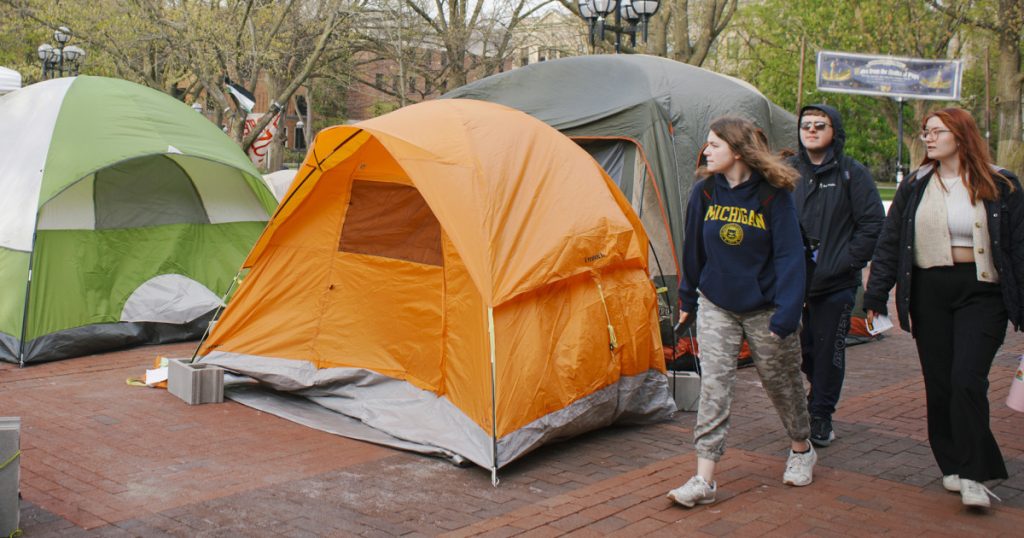As universities across the country grapple with the potential disruption of their commencement ceremonies due to student protests, concerns over safety, and increasing tensions on campus, the University of Southern California recently canceled its main commencement ceremony amid protests over student speeches. Students at Columbia University in New York, where anti-war demonstrations have led to arrests, are worried about the possibility of disruptions to their own ceremonies. Protests have flared up at various schools, with some students expressing fears of a domino effect similar to what happened at Columbia when students set up an encampment on campus.
Graduating college students who have already experienced disruptions to their education due to the pandemic are now facing uncertainties about their commencement ceremonies being affected by protests. Henry Sears, a senior at Columbia University, expressed concerns about the potential impact on commencement, especially after experiencing an online first year of college. Another Columbia senior, Jacob Schmeltz, highlighted the disruptions to his high school experience due to the pandemic, emphasizing the challenges faced by students who have been navigating through unprecedented circumstances.
The protests and disruptions at universities such as USC and Columbia have led to the cancellation of key events during commencement ceremonies, including speeches and the presentation of honorary degrees. USC officials acknowledged the disappointment of canceling the main commencement ceremony but stated that they would strive to create new activities and celebrations to uphold the spirit of the event. Similarly, Columbia University is focused on ensuring the safety and security of its campus community while planning for commencement, aiming to maintain the cherished annual celebration.
Concerns about potential disruptions to graduation events at universities like Columbia and the University of Michigan have been raised by students, prompting officials to consider security measures and address any potential escalation. The University of Michigan emphasized the tradition of free expression and peaceful protest at commencement ceremonies, with a commitment to addressing disruptions if they significantly impede the event. Yale University also highlighted the importance of planning for a safe and enjoyable commencement experience for graduates, families, faculty, and staff while working with security teams to ensure a smooth celebration.
Amidst the protests and tensions on campus, some students have reported feeling unsafe and marginalized, particularly those representing Jewish student groups. Sears and Schmeltz, who are both actively involved in student organizations, have witnessed hostility and animosity among their peers, leading to a challenging environment for dialogue and engagement. Instances of dehumanization and derogatory actions have further exacerbated the divide, prompting concerns about the ability to celebrate with peers who have exhibited discriminatory behavior.
While Jewish students at Columbia University have described feeling isolated and struggling to navigate the tensions on campus, the experiences of pro-Palestinian student organizations and their representatives have not been included in this narrative. The ongoing conflict and unrest surrounding the Israel-Hamas war have heightened tensions on college campuses, with students from different backgrounds and perspectives experiencing varying degrees of animosity and discrimination. As graduation season approaches, universities are faced with the task of balancing the right to peaceful protest with the need to ensure a safe and inclusive environment for all students during commencement ceremonies.


